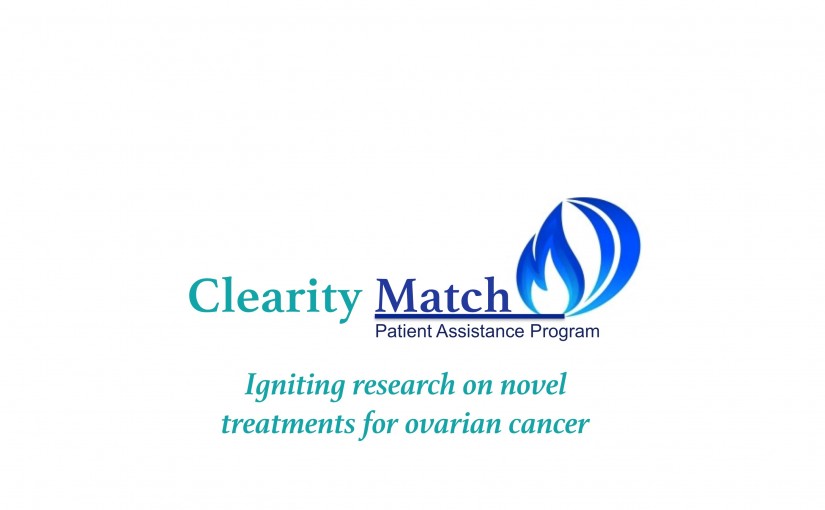Clearity has taken steps to help accelerate molecular matching by enabling women to access the drugs their physicians prescribe to treat their ovarian cancer. The pilot Clearity Match Patient Assistance program that was recently announced helps subsidize the cost of selected profile-matched drugs for women who meet the eligibility criteria. The hope is that women will be able to benefit today and also help others benefit in the future. Sharing these experiences in case studies can fuel pharmaceutical company interest and drive clinical development and approval of these drugs for ovarian cancer.
Traditional clinical trials for patients with breast, prostate, lung, or colon are readily enrolled, even when only a small percentage of the patients have a specific genetic mutation that is expected to predict effectiveness of the drug being tested. Those cancers have approximately 200,000 new diagnoses every year, so it is relatively easy to enroll a clinical study which requires a patient to have a mutation that is detected in only one of every 100 patients (i.e., 1%). It is more challenging to do the same for patients with uncommon cancers like ovarian, where 20,000 patients are diagnosed every year. The studies would take too long to perform. So, investigators in the “match” trials have decided to accept a patient with any cancer type as long as their tumor has a specific molecular profile. The key assumption is that a drug will work against most cancer types if there is a specific molecular profile that predicts response. These “match” trials will determine if that assumption is correct and most importantly, provide promising drugs to patients with rarer types of cancers.
In August, 2015, the NCI initiated a tumor profile-match trial called “NCI-molecular analysis for therapy choice” or NCI-MATCH for all advanced stage cancer patients with chemotherapy refractory disease. The response from patients and physicians (800 patients in the first 3 months) was so incredible that they temporarily suspended the trial to do some pre-planned analyses. In results shared at the recent American Association of Cancer Research (AACR) conference in April, they announced that the molecular profiling analyses done during the screening phase of tumor biopsies from 645 patients showed that 55 (9%) had actionable mutations. An actionable mutation means that there is a drug available in the trial to match that mutation. 33 (5%) patients were matched to drugs in the first 10 arms of the trial. When the trial re-opens in May, they expect to have 24 treatment options to choose from (instead of ten) so that more than 9% of the patients can be matched to drugs and will molecularly screen a total of 5000 patients to enroll the full study. The nearly 800 enrollment sites are found in every state, so finding a location nearby should be much easier than it is for many clinical trials.
In March of this year, the American Society of Clinical Oncologists (ASCO) opened their first clinical trial ever, called TAPUR for “Testing the Use of Food and Drug Administration (FDA) Approved Drugs That Target a Specific Abnormality in a Tumor Gene in People With Advanced Stage Cancer”. This trial will match patients with any cancer type to drugs approved in other cancers based on the molecular alteration(s) found in their individual tumor. Clearity patients can use the results from their tumor molecular profiling to enroll in this trial if there is a match to the growing list of alterations that the trial is testing. There are currently 14 arms of this trial testing 16 drugs at sites in Michigan and North Carolina, but there will eventually be 36 enrollment sites across the country.
Opportunities for accessing drugs that are matched to a tumor molecular profile have improved markedly in the past year: two large “match” clinical trials as well as the Clearity Match Patient Assistance program. Please let us know if you would like help determining if any of these is right for you.


